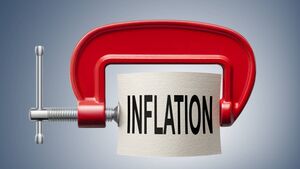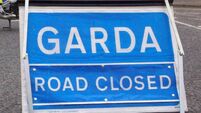Herald Opinion: Price hikes hitting already stretched households

Inflation is when the cost of goods and services—like groceries, rent, a haircut, or even the litre of milk—increases over time.
Have you noticed how everything still seems to be getting more expensive? A couple of years ago, we saw sharp spikes in inflation. And while the inflation rate has eased since then, prices are still going up—just not as quickly as before.
The result? We’re still paying more for everyday essentials, even as headlines try to reassure us that things are improving. But those headlines don’t always reflect what we’re seeing in the real world. In fact, more price hikes have landed this month, hitting already stretched households across the country.
We’ve heard the word “inflation” again and again—but what does it actually mean? Simply put, it’s when the cost of goods and services—like groceries, rent, a haircut, or even the litre of milk—increases over time. A small bit of inflation is considered healthy for a growing economy. But over the past few years, the increases haven’t felt small or healthy—they’ve felt relentless.
Now, even though inflation is technically slowing, the damage is done. The high prices are here to stay. And let’s be honest—when prices go up, they very rarely come back down. That’s why so many households still feel squeezed, no matter what the figures on paper say.
What’s even more frustrating is that this month, it’s not just the usual costs rising—it’s also the things we’re locked into. Services we rely on and can’t easily opt out of are becoming more expensive.
Take health insurance. Like many people, I pay for a policy. It’s not cheap, but it provides peace of mind—knowing we can access healthcare without long delays. Unfortunately, that comfort is costing more and more. Laya Healthcare, the second-largest provider in the country, is increasing its prices by an average of 6.6 per cent. Level Health, the newest player in the market, is hiking all four of its plans by an average of 6 per cent from April 7th. And earlier this year, VHI and Irish Life Health also raised their premiums.
Then there’s energy. SSE customers are seeing another bump in electricity bills. Mobile phone users with Eir, Vodafone, and Three are facing annual price increases again, thanks to a built-in policy that kicks in every April. Broadband charges are climbing too, and if you’ve got a Sky subscription, brace yourself—those bills are going up as well. Is it any wonder that the “dodgy boxes” are still going strong in Ireland?
Of course, we should all shop around where possible, but the reality is most people only really negotiate one thing - car insurance. And even that seems to be getting more expensive by the week.
The motorist is really being hit hard. Petrol and diesel prices remain high. Electric vehicles might be cheaper to run, but they’re not exactly affordable to buy in the first place. Thankfully, we’re heading into the warmer months and won’t need the heating on as much. But we’re still paying heavily for all types of fuel—and a big part of that is down to carbon tax.
Where there’s a big price difference, people will always find ways around it. Anecdotally, I’m hearing about households saving big by sourcing home heating oil and kerosene from across the border. When the cost gap gets that wide, smuggling tends to follow. And can you really blame them? Businesses are struggling. Families are struggling.
I help out with our local club lotto, and one small thing we’ve noticed lately says a lot: publicans aren’t asking for coins anymore. The price of a pint is now at the €5 mark in rural Roscommon—so they want €5 notes, not €1 or €2 coins. In Dublin’s Temple Bar, it’s closer to €10 for the same drink. Sure, a pint isn’t a necessity—but groceries, fuel, and insurance are, and they’re all going up.
I heard a butcher in Wicklow saying he’s had to stop selling lamb because it’s just too expensive. He can’t compete with supermarket meat counters that can afford to take a loss on lamb to get customers in the door and make profit elsewhere. That’s his view—but on the flip side, maybe farmers are finally starting to get a fair price for their animals. At least someone might be winning.
But the truth is, there are always too many middlemen between the producer and the consumer. Everyone’s looking for their slice of the pie. And then there’s the government, and all the taxes layered on top of everything. When you buy petrol or diesel, a huge chunk of what you’re paying is tax. And when everything moves to electricity in the future, you can be sure there’ll be new taxes to replace the old ones.
And don’t even get me started on VAT. There’s nothing more frustrating than being told something costs €400—only to find out it’s actually nearly €500 once VAT is added. It feels like we’re being fleeced at every turn.
The bottom line? Costs are going up, and most of us are just trying to keep up. Slowing inflation might make the headlines look better, but in the real world, the squeeze is still very much on.





